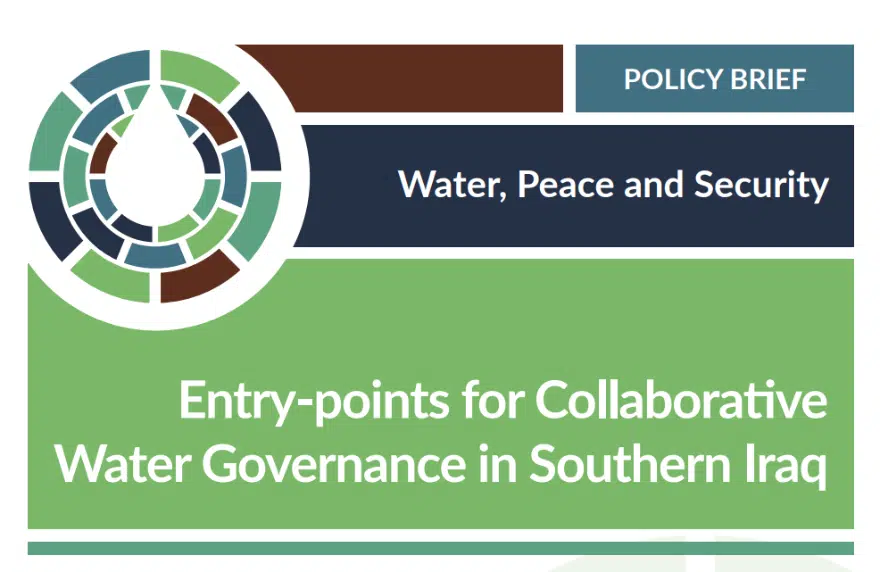Challenges related to the water situation in Iraq are numerous and complex. While the supply of water from the Euphrates and Tigris rivers is decreasing, water demand is rapidly increasing. Iraq’s water supply has fallen by 30% since the 1980’s as a result of lower levels of rainfall, the construction of dams, heavy water use by the oil industry and the impacts of war on vital water infrastructure. By 2025, overall water supply is predicted to decrease by up to 60%, compared to 2015. Water quality has also deteriorated, resulting in health crises and widespread protests.
The water challenges in Iraq have an interprovincial dimension that has received little attention at the national and international level. Even though the relationship between water and stability is complex and dependent on context, it can be asserted that geographical, legal, economic and socio-political factors impact the likelihood of water-related conflict.
How should this urgent and complex crisis be addressed? In this working paper, Water, Peace and Security (WPS) experts Dorith Kool, Laura Birkman and Bianca Torossian analyze this pressing and under-researched crisis and outline the building blocks to effectively address water-related conflict in Iraq.
Download the working paper here.
Water, Peace and Security:
This working paper is an outcome of The Water, Peace and Security (WPS) partnership. The partnership was founded in 2018 to pioneer the development of innovative tools and services that help identify and address water-related security risks. These tools and services can link hydrological, social, economic, ecological and political factors to pinpoint changes in short-term water availability and their potential impacts on society. Based on this information, evidence-based actions can be taken to mitigate human security risks, which WPS facilitates through capacity development and dialogue support.
WPS is a collaboration between the Netherlands Ministry of Foreign Affairs and a consortium of six partners: IHE Delft (lead partner), World Resources Institute (WRI), Deltares, The Hague Centre for Strategic Studies (HCSS), Wetlands International and International Alert.







